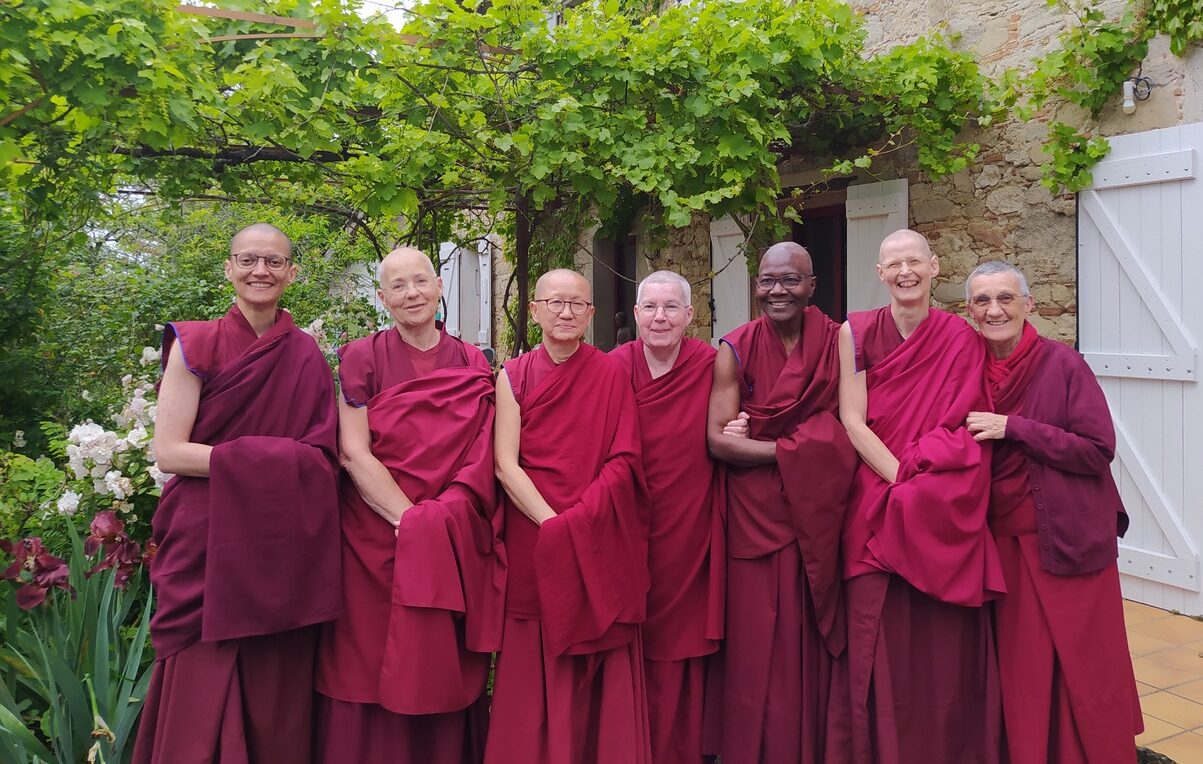
Creating a monastery is a long-term project and is extremely beneficial, for both the nuns as well as the neighboring lay community and the environment in general. A monastery is also important for the teaching of Buddha to be available and to last in this region of the world.

Dorje Pamo Monastery wants to provide a place where nuns can live in accord with their vows and support each other in their spiritual practice:
- Accordingly, the nuns’ schedule follows a program of daily prayers (communal and individual), study, and service.
- Respecting the precepts of mind-training, the nuns learn to live together harmoniously and by doing so, become a source of inspiration for others.
In addition, Dorje Pamo aims to serve the local community:
- The monastery is a place of spiritual inspiration for all; with a meditation hall open to Buddhists and non-Buddhists.
- With their ardent wish to be useful to others, the nuns want to draw on their understanding of the human mind, acquired from study and meditation, to serve the people in their local community.
- They are available to help through spiritual guidance.
- Lay women, as well as lay men, will find a welcoming place where they can recharge, find resources, and interact with experienced practitioners.
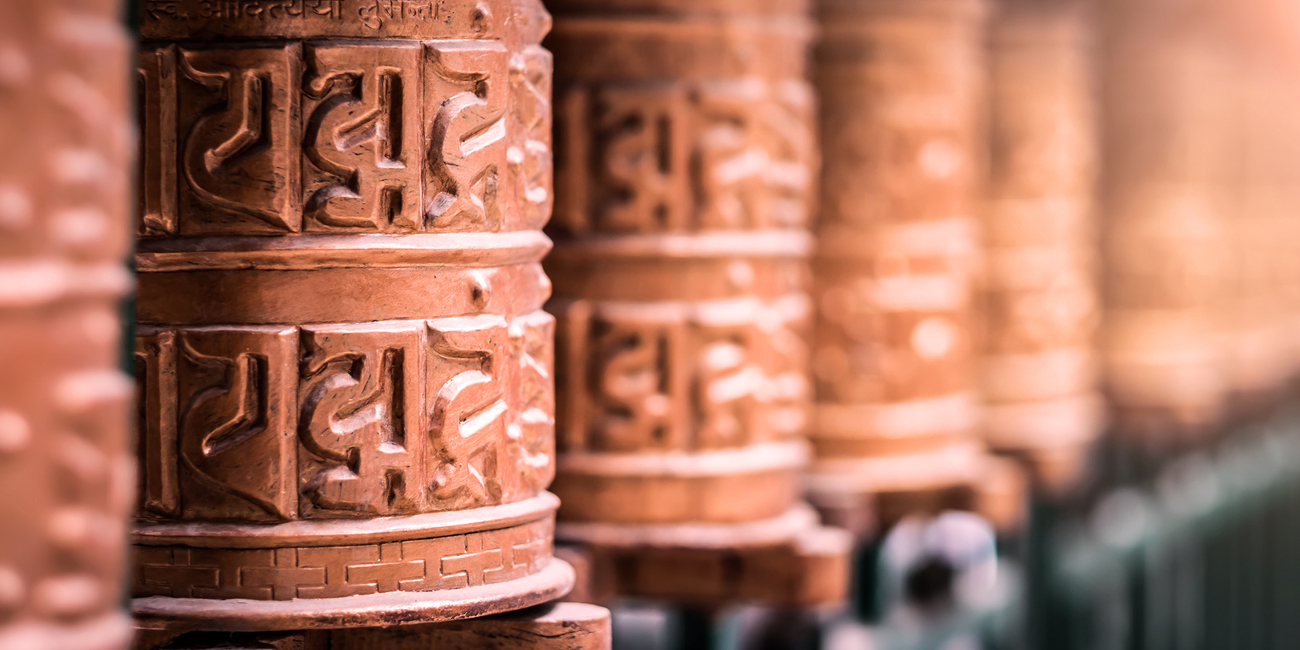
The Story of Dorje Pamo Monastery
The history of Dorje Pamo Monastery is part of the history of Tibetan Buddhism’s arrival in the West in the second half of the 20th century, and more specifically the history of the FPMT (Foundation for the Preservation of the Mahayana Tradition).
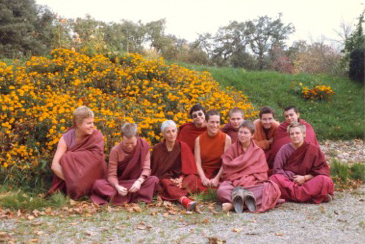
– 1980 –
The founding lamas of this organization, Lama Thubten Yeshe and Lama Zopa Rinpoche, visited France in 1978 and 1979. One of the consequences of those visits was the creation of a Dharma center, the Vajra Yogini Institute, and of Nalanda Monastery for monks, in the Tarn department near Toulouse, France. The first Dorje Pamo Monastery was created in the 1980s in one of the large outbuildings of the Vajra Yogini Institute.
“Don’t think that what you are doing, you’re doing it for yourself. You’re doing it for the nuns of the future.”
Lama Thubten Yeshe, who founded Dorje Pamo Monastery during his first visit in 1982.
A group of young nuns of diverse nationalities started a religious community. It was closely linked to the Institute and the neighboring monastery under the guidance of the resident Tibetan Lamas. Dorje Pamo was the first monastery in the Tibetan Buddhist tradition created for Western nuns.
Those present at the time remember the positive influence that the young nuns had on those around them and their enthusiasm for study, practice, and service. Read an article of Mandala magazine (1984).
– 1987 –
The Buddha taught that everything is in perpetual change, because of multiple causes and conditions, which are themselves in constant evolution. Therefore, after a number of years, the causes and conditions were such that the nuns were called upon to help out with management and teaching and in various FPMT centers. This was the end of the first generation of Dorje Pamo Monastery.
A few decades have passed and the question of a monastery repeatedly comes up in conversations. More recently, nuns living in the area around Lavaur have come together to regularly practice and discuss issues related to daily life, ethics and support for nuns.
– 2016 –
In 2016, we joyfully received the donation of a large house surrounded by 6 hectares of land, orchards, woods, a pond, and fields. We had finally found a home for our future monastery! Naturally and following the recommendations of our spiritual director Lama Zopa Rinpoche, who endorsed the project, we have revived its original name, Dorje Pamo Monastery.
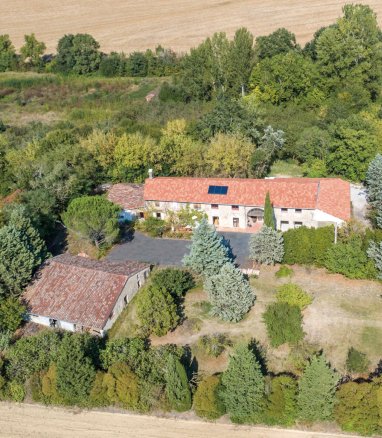
– 2018 –
The project is gaining momentum. People are volunteering, the plans have been drawn up, and the estimates for renovations have been completed.
The “major structural work” of the nuns’ accommodation part of the building started in March and was finished in the beginning of the summer. This included: repairs to the roof, changes of all door frames, creation of new rooms and new doors and windows, installation of a new heating system, complete renovation of electricity, plumbing, water supply and drains.
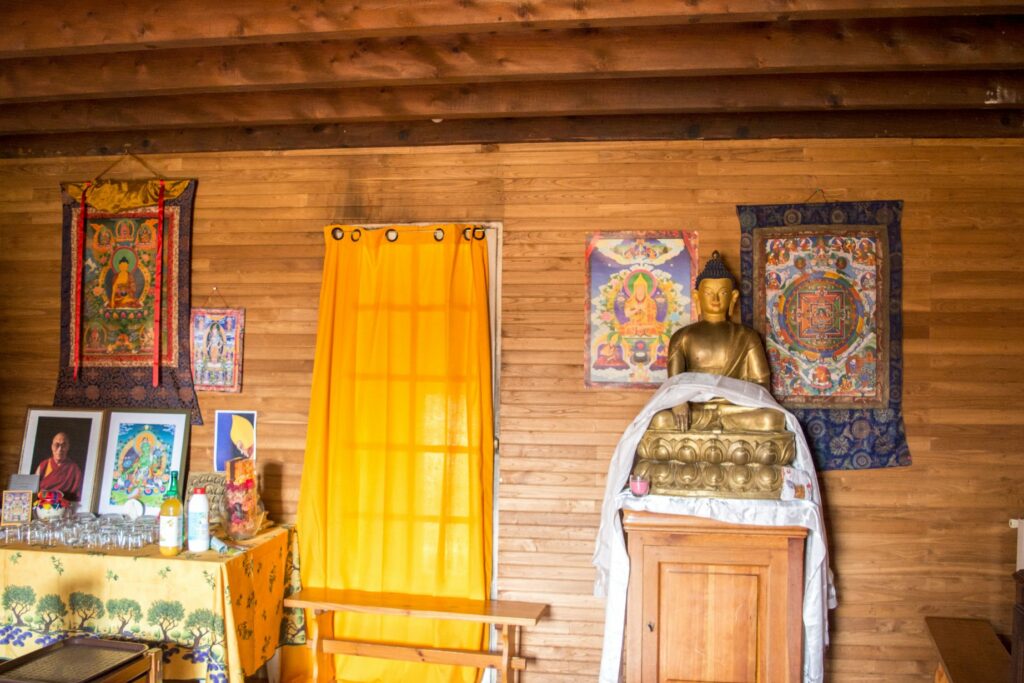
Before the first nuns could move in, the building required painting. Courageous groups of volunteers took turns throughout the summer working throughout the oppressive heat to get the work done. The first nuns moved in, in September. From the beginning of October, the professional workers (plasterers, carpenters, electricians, plumbers, etc), returned to resume work on the Gompa / Library / Reception areas.
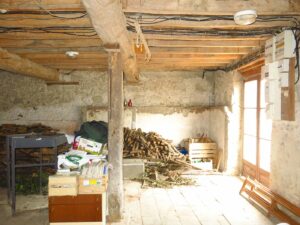
– 2019 –
As for August, works on the temple / gompa and library are near to completion. Courageous volunteers are setting up the floor boards. The beautiful altar has been delivered and put in place.
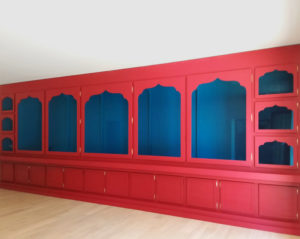
– 2021 –
The altar has been painted, according to the wish of Lama Zopa Rinpoche, with classical Tibetan decoration by the Nepalese/American artist Gelek Sherpa.
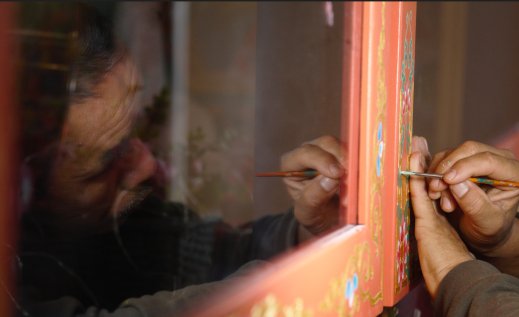
– 2022 –
The finishing touch on the altar, the frieze, has been fitted by the artists Gelek and Peter Griffin during winter. Only a line of vajras needs to be added. Also, we welcomed a White Tara statue, created by Denise Griffin and painted by Gelek.
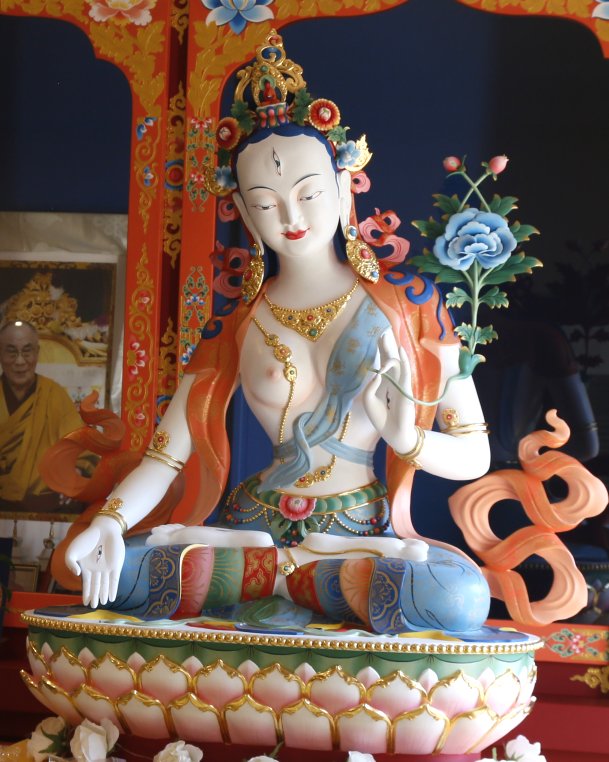
– 2023 –
With the help of several professionals, the plans for a new kitchen have been finalised. Jean-François Bergevin will be in charge of the works, which will start in December and be finished by the Spring of 2024. A remake of the current kitchen/dining room is also needed, as well as an access road to the kitchen.
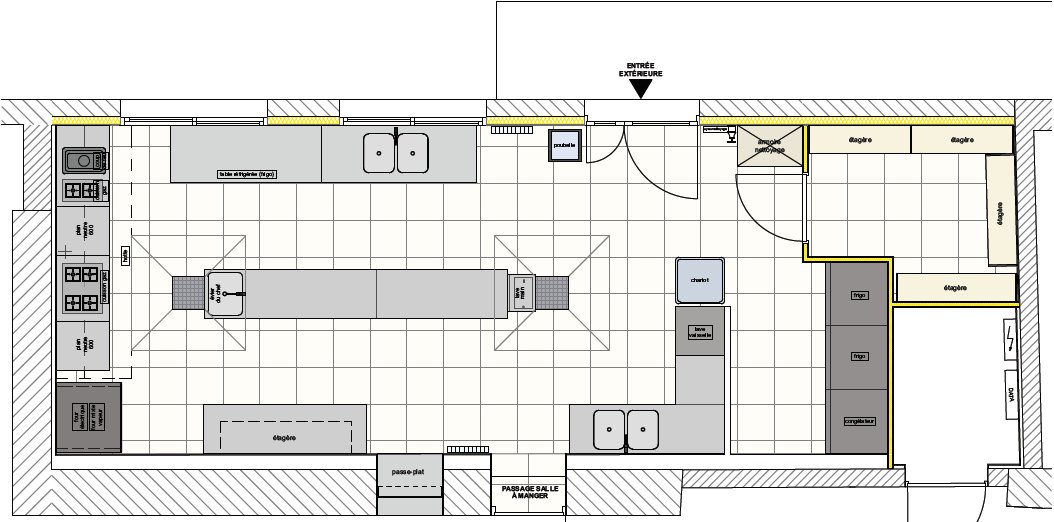
Location
We are fortunate that the monastery is in the middle of 6 hectares of countryside. This is a haven of nature conducive to recharging, meditation, and above all offers an ideal, peaceful haven for nuns to study, to practice and to work for the benefit of others.
